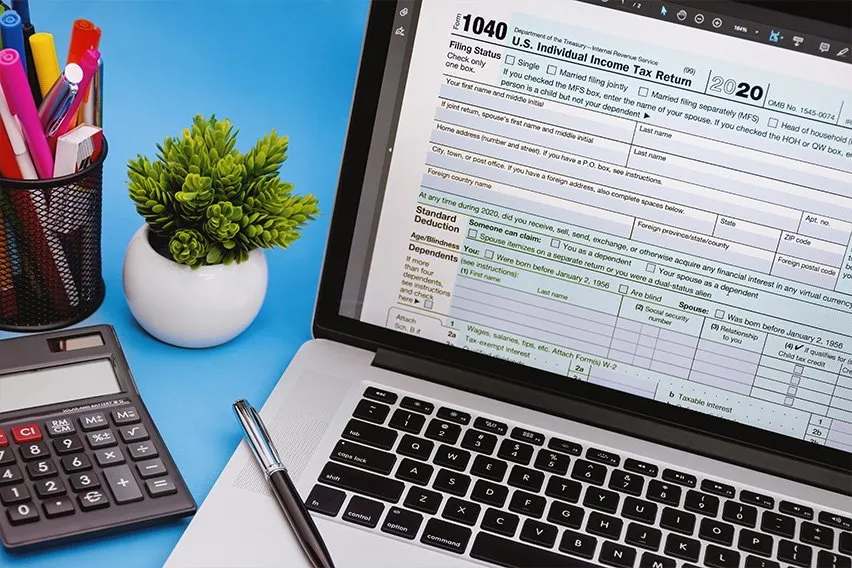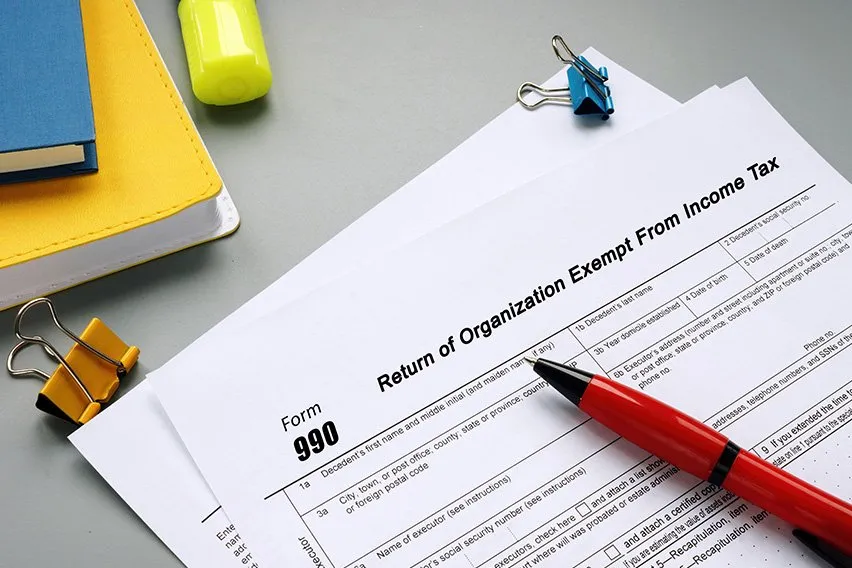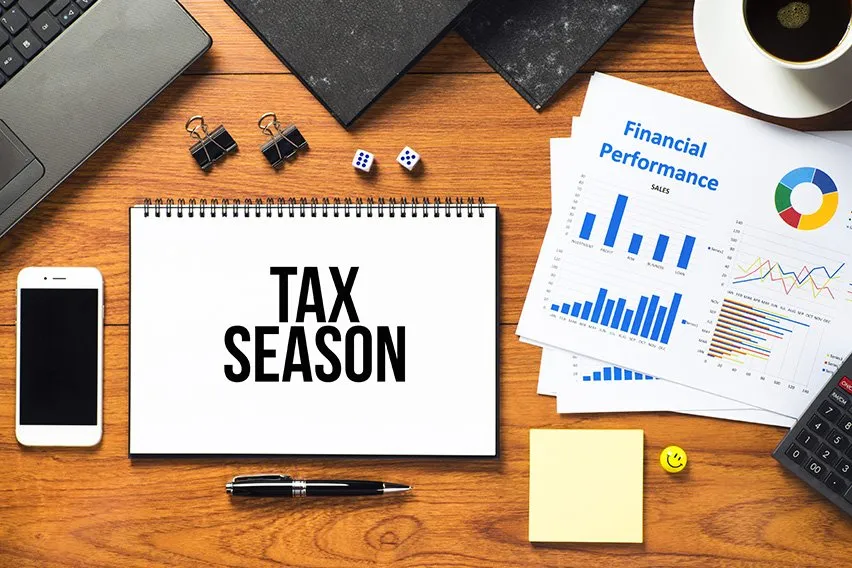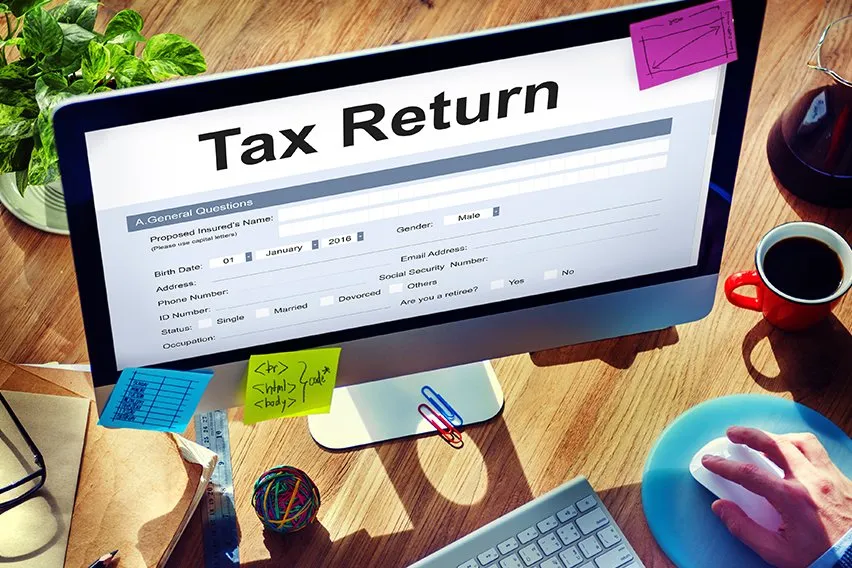Real Estate Tax Deductions Every Business Should Know

There are countless perks to being a residential or commercial property owner. By owning real estate, you have the opportunity to build wealth and invest in your future. Even better, you can look forward to some money-saving write-offs come tax time.
Many property owners miss out on these tax savings simply because they’re unaware these deductions exist. The good news is you can reap the benefits for yourself, even without the help of an accountant, as long as you know what these deductions are and how to use them.
In this guide, you’ll learn the top tax breaks real estate property owners can take advantage of this tax year.
Here’s What We’ll Cover:
Do You Qualify for Real Estate Tax Breaks?
Taxes for Property Owners Made Easy
Top Real Estate Tax Write-offs According to the IRS
How to Claim Your Property Tax Deduction
How to Increase Your Property Tax Deduction
Manage Your Real Estate Taxes Like a Pro
More Resources for Real Estate Accounting
Do You Qualify for Real Estate Tax Breaks?
A tax deduction decreases a property owner’s tax liability by either minimizing the amount of income or revenue generated by the owner or property, or by “writing off” certain property-related expenses. By qualifying for certain deductions, you can reduce the amount of taxes owed to the IRS.
Every type of deduction has its own requirements regarding who qualifies and who does not. To find out if you qualify, you will need to assess your specific situation and review the qualifications for each type of deduction, which we’ll be covering below.
Overall, property owners should aim to maximize their deductions in order to save as much money as possible come the end of the tax year.

Filing a Form 1040
According to the IRS, homeowners must file a Form 1040 (U.S. Individual Income Tax Return) or a Form 1040-SR (U.S. Income Tax Return for Seniors) in order to deduct the expenses of owning a home on their income taxes. You must then itemize these deductions on Schedule A of your tax return as opposed to claiming the standard tax deduction.
Taxes for Property Owners Made Easy
As a property owner, including those eligible for landlord tax deductions, you might find the process of filing real estate taxes, calculating your deduction, and filling out a tax return confusing. Fortunately, we’re covering the basics—including what property tax is, why it matters, and how to determine which property taxes are deductible.
Property Tax Defined
Property tax is a tax paid on property owned by an individual, organization or corporation. Property tax is calculated by the government where the property is located and then paid by the property owner.
Why are Property Taxes Collected?
Collected tax funds are then used to improved roads, fund water and sewer improvements, provide services like fire protection and education, and cover other services that benefit the local community.
What Does This Mean for Me?
As a property owner, you are subject to the tax rates determined by your state and local government. Your municipality will assess the local property and then assign property taxes to owners based on the current fair market value. This will play a role in determining how much you have to pay on your income taxes.
Fortunately, you can minimize your tax liability by taking advantage of certain tax write-offs, like the ones outlined in this guide. If you choose not to claim the standard deduction, then you can itemize your deductions to help you save the most money possible.
Top Real Estate Tax Write-offs According to the IRS
The IRS provides a wealth of resources regarding real estate taxes to help property owners navigate the often complex process of filing a federal tax return.
There are four primary “categories” of deductions: State and local real estate taxes, sales taxes, home mortgage interest, and mortgage insurance premiums.
While there are many unique situations that raise questions around what a property owner may or may not qualify for, most property owners can look forward to what the IRS outlines as the most common tax deductions for real estate.
Housing Payment
If you took out a mortgage loan to finance your home, you likely make monthly house payments. This may encompass several expenses, but the only costs that qualify as a tax deduction are your state and local real estate taxes, any home mortgage interest, and your mortgage insurance premiums.
Some nondeductible expenses that may be included in your house payment include:
- Fire or homeowner’s insurance premiums
- Money paid to reduce the principal of your mortgage
Also Read: What Are Non Deductible Expenses
State and Local Real Estate Taxes
Are closing costs tax deductible? Most municipalities charge an annual tax (i.e., “real estate tax”) on the value of your property. Property owners may deduct up to $10,000 ($5,000 if married, filing separately) of their property taxes, and state and local income taxes. This may include taxes you pay on your:
- Home/primary residence
- Land
- Vacation home
- Co-op apartment
- Property outside the United States
There are several items that are not deductible as real estate taxes. You can’t deduct an expense as a real estate tax if it is:
- A unit fee for the delivery of a service. For example, a $5 fee charged for every 1,000 gallons of water you use
- A periodic charge for a residential service, such as a $240 annual fee charged to each homeowner for trash collection
- A flat fee charged for a single service provided by your local government, like a $30 charge for mowing your lawn because it had grown higher than permitted under a local ordinance
Minister or Military Housing Allowance
If you are a minister or a member of the armed forces and receive a non-taxable housing allowance, then you can deduct your real estate taxes and home mortgage interest.
Nondeductible Items
You must look at your property-related expenses and real estate tax bill to decide if any nondeductible charges are included in the bill. Often, homeowners experience confusion around what may or may not qualify as a tax deduction. In these cases, it may be best to contact a tax professional for assistance.
Note that you cannot deduct any of the following items:
- Property taxes on property or land you don’t own
- Insurance (besides mortgage insurance premiums), including fire insurance and title insurance
- The cost of utilities such as gas, electricity, water, or internet
- Property taxes you haven’t paid yet
- Wages paid for domestic help (like housekeeping or childcare)
- Taxes paid for services like water or garbage collection
- Depreciation costs
- Transfer taxes (or stamp taxes)
- Most settlement and closing costs
- Homeowners association assessments
- Foreign taxes paid on real estate
- Assessments for local benefits (i.e., expenses paid to increase the value of your property): You can only deduct a property tax if it’s “assessed uniformly” at a similar rate for similar property in your community (these proceeds must serve to help the community, not pay for a unique privilege to you)
Deductions for Renters
Some states actually offer renters tax credits that can save them money on their tax returns. This means some renters may qualify for a property tax deduction on their state taxes.
While the rules vary from state to state, the basic requirements for claiming such a deduction include:
- You must be a resident of the state you rent in
- You can’t be claimed as a dependent on somebody else’s tax return
- Your landlord paid property taxes on the property in which you rented
For states that offer this tax break, the primary purpose tends to be to mitigate the cost of rising property taxes that could be passed on from landlords to their tenants. So it’s important to note whether your landlord in fact paid these property taxes if you’d like to claim this deduction as a renter.
How to Claim Your Property Tax Deduction
When it comes to claiming certain expenses, particularly when it comes to property taxes, the more organized your finances are, the better. Don’t wait until tax time to gather your receipts or download your bank statements. It’s best to keep a record of all expenses from the start of the new tax year.
To claim your property tax deduction, follow these steps:
- Collect your tax records: Your taxing authority should be able to furnish you with a copy of your real estate tax bill upon request. You should also collect paperwork for any of your other assets (such as your car, boat, or RV) to see whether you are paying property taxes on these as well. You might find that a portion of these expenses is also tax-deductible.
- Use a Form 1040 or Form 1040-SR: These are the required U.S. tax forms for property owners.
- Use Schedule A when filing your tax return: This is where you itemize your deductions versus taking the standard tax deduction. You will then be able to calculate your total deduction. Itemizing your taxes often takes more time, but may result in a lower tax bill. If you’re not sure whether you should itemize your deductions, or how to effectively complete your tax return, consider working with a qualified tax professional.
- Deduct only the taxes paid during the year: Some property owners pay their taxes as a lump sum (perhaps once or twice per year) when the bill comes, while others set money aside on a monthly basis. On your tax return, you should only deduct the amount actually paid during the tax year.

How to Increase Your Property Tax Deduction
So you want to save more money on your real estate taxes. How do you maximize your property tax deduction as a property owner? Well, there are a couple of steps you can take to increase your tax deduction and keep more money in your pocket.
1. Prepay on Your Property Taxes
The early bird gets the worm, or, in this case, the best real estate tax break. While most taxes are due in April, property owners have the option to pay early in order to deduct in the current year rather than in the following year.
2. Get Prepared Early
Don’t wait until the final hour to get all your financials in order. By keeping a record of all property-related expenses early, you’ll be in a better position to calculate your total property tax deduction, and maximize your tax savings. Real estate accounting software can help you keep a detailed account of all income and expenses so you have all the information you need when it comes time to tackle your real estate taxes.
3. Check Your Registration Paperwork
If you’re renewing your registration on any of your vehicles or other movable assets, check to see if any of it includes property tax. You might be able to claim this as a deduction on your real estate taxes.
4. Refer Back to Your Closing Documents
Sometimes a property tax deduction can be hiding in your closing paperwork; this detail is easy to overlook. If you bought or sold a home this year, see if you paid any property taxes at closing. This might qualify as a property tax deduction as well.
Manage Your Real Estate Taxes Like a Pro
Reap all the benefits of being a savvy property owner, especially homeowners, by maximizing your tax savings this year and accounting for every deduction, including tax deductions for homeowners. By getting organized early and keeping a record of all property-related expenses, you can look forward to some savings on your real estate taxes. Maximize your property tax deduction with the tips in this guide and end the year with more money in your pocket.
More Resources for Real Estate Accounting
RELATED ARTICLES

 10 Tax Deductions for Cleaning Businesses
10 Tax Deductions for Cleaning Businesses Construction Tax Deductions for Builders and Contracting Businesses
Construction Tax Deductions for Builders and Contracting Businesses Nonprofit Tax Deductions for 501(c)(3) Organizations
Nonprofit Tax Deductions for 501(c)(3) Organizations Five Easy Ways to Tackle Tax Season When You're Self-Employed
Five Easy Ways to Tackle Tax Season When You're Self-Employed How the Self-Employed Can Prepare for Tax Season All Year Long
How the Self-Employed Can Prepare for Tax Season All Year Long Five Tips for Freelancers Preparing for Tax Season
Five Tips for Freelancers Preparing for Tax Season